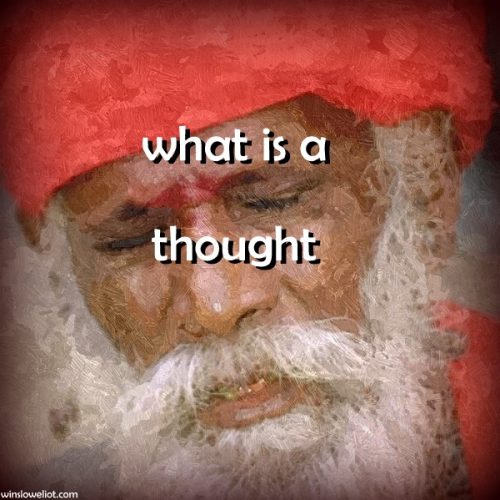 Developing our thinking skills has helped humans to evolve from grunters and gesticulators to experts in language and invention. Thoughts have helped us to reach great heights of artistic self-expression and invention. More personally, our capacity to think clearly helps us better navigate emotional shoals or tells us that we’re better off doing one job over another. Our thoughts are curious, intelligent, and incredibly helpful. They enable us to build, innovate, and explore. They help us prioritize, make lists, and accomplish. But they’re not who we are: thinking is simply a capacity we have. We are not our hand nor our foot nor our spleen—and we are not our brain nor a thought we have. We’re also not just our emotions, as many creatures are, nor pure action, as a machine is. As humans, we want to combine all three—thinking, feeling, and doing—equally. Too often, we let our thoughts overpower the other two. We give them so much honor and worship that we forget this crucial human balance. That’s when a thought can turn into a tyrant–berating, confusing, and stressing us. Our thoughts are our friends, unless we treat them like our master.
Developing our thinking skills has helped humans to evolve from grunters and gesticulators to experts in language and invention. Thoughts have helped us to reach great heights of artistic self-expression and invention. More personally, our capacity to think clearly helps us better navigate emotional shoals or tells us that we’re better off doing one job over another. Our thoughts are curious, intelligent, and incredibly helpful. They enable us to build, innovate, and explore. They help us prioritize, make lists, and accomplish. But they’re not who we are: thinking is simply a capacity we have. We are not our hand nor our foot nor our spleen—and we are not our brain nor a thought we have. We’re also not just our emotions, as many creatures are, nor pure action, as a machine is. As humans, we want to combine all three—thinking, feeling, and doing—equally. Too often, we let our thoughts overpower the other two. We give them so much honor and worship that we forget this crucial human balance. That’s when a thought can turn into a tyrant–berating, confusing, and stressing us. Our thoughts are our friends, unless we treat them like our master.
